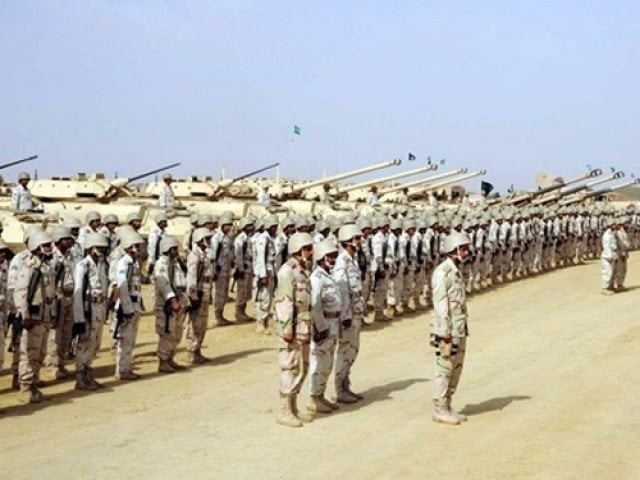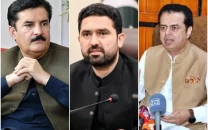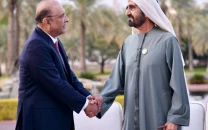Pakistan nears its moment of truth
Islamabad in a quandary as fear remains that Saudi coalition actually targets Iran

A file photo of Saudi military exercise. PHOTO COURTESY: WORLD TRIBUNE
Pakistan needs to finalise the extent of its participation in the Saudi-led coalition of Muslim countries later this month when the defence ministers of member countries meet in Riyadh.
The defence ministers from Islamic Military Counter Terrorism Coalition (IMCTC) are due to meet in the Saudi capital on November 26 to discuss the terms of reference (ToR) of the grouping.
Saudi state media confirmed that all member countries have been invited to the defence ministers’ meeting.
Pakistan draws redlines for joining Saudi alliance
“The meeting aims to consolidate bonds of cooperation and integration within the coalition and represents the effective beginning of the IMCTC efforts, which included 41 Islamic states, to coordinate and unify efforts in fighting extremism and extremism in addition to integration with other international efforts,” according to the Saudi Press Agency (SPA).
It said the coalition was established to achieve the coalition's message and provide an institutional platform for proposals and discussions in order to facilitate ways of cooperation among the member states and the countries supporting initiatives within the framework of fields of military, intellectual, media and combating terrorism financing.
In principle, Islamabad has agreed to be part of the coalition and has already allowed former Army Chief General (retd) Raheel Sharif to head the force.
The extent of Pakistan’s participation on the ground in the alliance, however, has yet to be decided.
Pakistan left with limited options in Saudi-led Islamic military alliance
The government said the scope of its participation would be determined once the ToRs of the grouping are finalised.
Given the possible implications, coupled with domestic pressure, Pakistan is treading a careful path as it wants to maintain a balance in its ties with Saudi Arabia and Iran.
Army Chief General Qamar Javed Bajwa recently visited Tehran where he held talks with senior Iranian leadership. One of the issues that came under discussion was thought to be the Saudi alliance.
Pakistan has already made it clear that it will not become a party to any move targeting another sovereign Islamic country.
Under Crown Prince Muhammad bin Sultan, Saudi Arabia’s ties with Iran are likely to further deteriorate, a scenario that would certainly test the skills of Pakistani diplomats.
Before taking a final decision, it is expected that the government would table the ToRs before Parliament.
In 2015, the government also took the Saudi request seeking Pakistani troops for its campaign in Yemen to Parliament.
Saudi-Iran rivalry aside, does Muslim world need a military alliance?
At the time, the National Assembly and Senate passed a unanimous resolution urging the government to stay away from the conflict involving other Muslim countries, while at the same time reiterating full support to Saudi Arabia’s territorial integrity and sovereignty.
The lip-service move caused an unusual strain on Pakistan’s ties with Saudi Arabia and other Arab countries.
Opposition parties, including Tehreek-e-Insaf and Pakistan Peoples Party, have insisted that the April 10, 2015 joint resolution of Parliament should serve as a guideline for the government.



















COMMENTS
Comments are moderated and generally will be posted if they are on-topic and not abusive.
For more information, please see our Comments FAQ